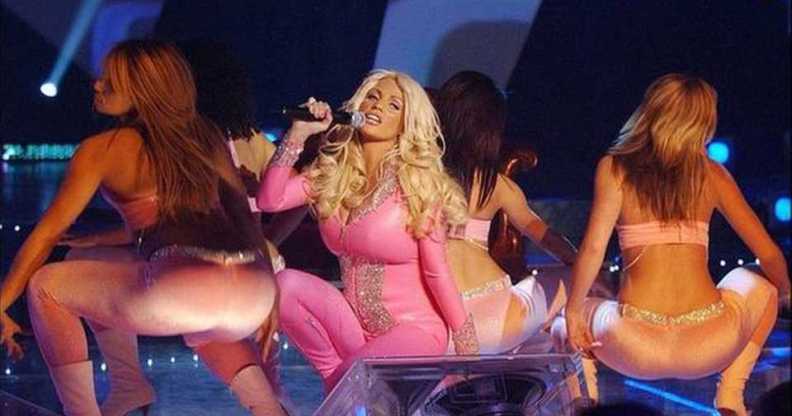The UK is making a groundbreaking change to how it competes in Eurovision

The televised Eurovision selection competition, which Katie Price competed in in 2015, may be scrapped under new plans. (BBC)
The BBC has confirmed that huge changes are in store for Eurovision 2020.
The UK’s participation in Eurovision 2020, to be held in Rotterdam, the Netherlands, was confirmed on Monday, September 16 – but with an important caveat.
While traditionally the British public has chosen its Eurovision entry through a televised competition, next year’s act will be decided by the BBC in collaboration with record label and publisher BMG.
The winning song will then be released by BMG, which published Sweden’s winning 2015 entry ‘Heroes’ and signed a deal with Israeli singer Netta following her 2018 win.
On Twitter, speculation was rife that BMG might put one of its own acts forward.
WAIT A MINUTE… ISN’T KYLIE SIGNED TO BMG???#Eurovision @bbceurovision pic.twitter.com/Rey9pgkvGx
— Rob Holley ?️ (@robholley) September 16, 2019
Though some remembered that big names haven’t fared well for us in the past.
How quickly we forget Blue, Bonnie Tyler and Engelbert Humperdinck.
— MattPopOfficial (@MattPopOfficial) September 16, 2019
Some wondered if the announcement was a sign that the industry will start paying more attention to Eurovision.
Hopefully the start of the UK music industry taking Eurovision more seriously? Interesting that BMG signed Netta as that means they think there’s money in it.
— Simon Smith (@Vauncey) September 16, 2019
UK Eurovision changes ‘important turning point’.
The BBC has not confirmed if the announcement means the end of the televised selection process, though its future seems unlikely.
Mel Balac, creative director for BBC Studios, called the news “an important turning point for the UK at Eurovision”.
Kate Phillips, the corporation’s controller of entertainment commissioning, added: “Our commitment to finding the right song has never been higher, and this collaboration with BMG, who have access to world class songwriters, is a genuinely exciting prospect.
“I am certain that together we can find the best song and artist possible for 2020.”
The UK has failed to crack the top 10 at Eurovision since 2009, when a pre-Sugababes Jade Ewen finished in fifth place with the ballad ‘It’s My Time’, written by Andrew Lloyd-Webber.
The following year’s entrant Josh Dubovie finished last with ‘That Sounds Good To Me’.
Britain rebounded the following year with Blue’s ‘I Can’, which finished in 11th place, but has since languished in the bottom half of the leaderboard, coming last again in 2019.

